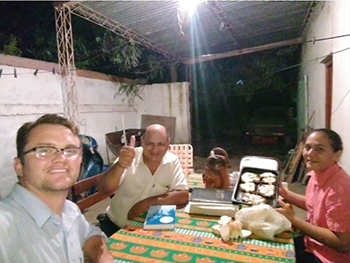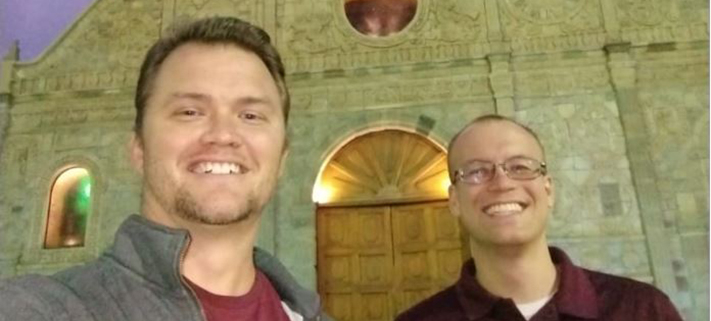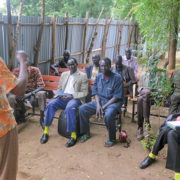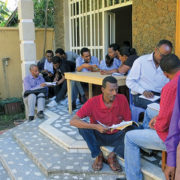Swords and Selfies
Less than thirty years after Martin Luther’s death, in the town of Riobamba in the Spanish territory known as the viceroyalty of Peru, and at the foot of what was then considered the world’s highest mountain, a man simply known as “the Lutheran” arrived. The story goes that he was suspected of being Lutheran because he talked about being saved by Jesus without a word about the Virgin Mary or any of the saints.

Coat of Arms in Riobamba
“The Lutheran” didn’t last long in Riobamba. The townspeople’s suspicions quickly turned into hate, and then into action. With the fervor that accompanied the festival of Saint Peter, the man who represented salvation by grace alone was dragged into the town square in front of the cathedral and hacked to death with swords. When word of the action reached Philip the IV of Spain, the king he was so impressed with the enthusiastic execution carried out by the people of Riobamba that he granted them the great honor of a royal coat of arms for their town. The year was 1575.
443 years later, fellow Lutheran missionary Nathan Schulte and I walked into the town square of the same village (now in the country of Ecuador). We saw the same facade of the church in front of which “the Lutheran” had been executed (the rest of the building was destroyed in an earthquake, but the ornately carved stone facade that presided over the martyrdom in 1575 still stands today). High on the municipal building at the center of the town’s coat of arms, a Lutheran face looks out over the square with two swords pointed towards it.
And we took selfies.
But I didn’t go all the way to Ecuador for a selfie. I made the trip (I live with my family in Mexico) to take part in a little of the work there in Ecuador and join Nathan and Phil Strackbein (the other missionary who lives in Ecuador) in a full day of planning of how the precious message of salvation by grace alone would be taken to the people of Ecuador. Our missionaries have only been in Ecuador for six months, but, so far, they are being met with more open doors than swords.

Carlos Fernandez and his wife Graciela study the catechism with Missionary Johnston in Argentina
My trip last month not only took me to Ecuador, but also to Paraguay, Argentina, and southern Mexico. At those stops I met people who, as they take classes online or in-person, were sharing it with others. I spent two entire days studying with a man in northern Argentina who, at the end of my last day, showed me the lot he owns where he plans to build a church and where the pure gospel will be shared. I visited the humble home of a man in southern Mexico who filled his small living room with family and friends so that we could talk about Jesus.
As I had the privilege to move freely and study the Bible with people in Latin America, I couldn’t help but think of “the Lutheran” of Riobamba, perhaps the first Lutheran in this part of the world. How could I complain about staying in an accurately-priced $13-a-night hotel room or spending half a day in a Paraguayan bus station when I compared what I had to go through to those who have gone before? By God’s grace, 501 years after the Reformation, we have an open door for the gospel in places where once we did not. Through online classes, on-the-ground missionaries, occasional visits and, above all else, by the power of the life-changing gospel, people are telling people, disciples are making disciples who make disciples, and the name of Jesus is being shared in Latin America.
Written by: Rev. Andrew Johnston, Missionary in Latin America
WELS Missions
Learn about the ministry work of WELS Missions.
SUPPORT MISSIONS
Support the ministry work of WELS Missions.
[fbcomments num=”5″]






